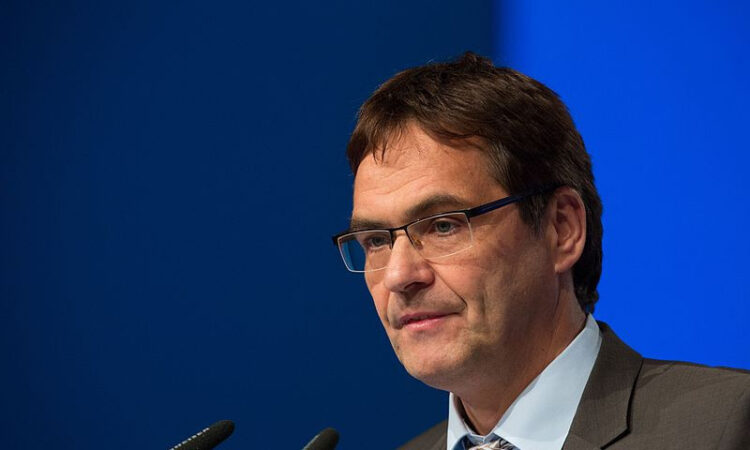
The European Parliament has approved three climate laws that form the heart of EU efforts to reduce greenhouse gas emissions by at least 55 percent by 2030.
“We have now finally agreed on the holy trinity,” said MEP for the conservative European People’s Party (EPP) Peter Liese on Tuesday (18 April) following the vote in Strasbourg. “Everybody will benefit from this.”
The first law up for adoption was the updated version of the Emission Trading System (ETS) on industry, increasing industry emission-reduction targets to 62 percent by 2030.
“This law is as much about energy security as the energy transition,” parliament president Roberta Metsola said, when explaining the need to increase the target. “We’re not going green for the sake of going green. The more incentive we give to go green, the more independent we will be.”
To protect heavy polluters against companies outside Europe that do not have the extra cost, a system of free allowances was built into ETS when it was first launched in 2005. Under the updated rules, these free allowances will be phased out between 2026 and 2034, increasing the cost of emitting carbon.
To keep EU industries competitive a carbon border levy (CBAM) directed at goods coming into Europe was also adopted by a broad majority in parliament, making up the second leg of the so-called holy trinity.
The levy will apply to imported steel, fertiliser, aluminium, cement, electricity generation, and hydrogen. It will be phased in from 2026 until 2034 at the same speed as the free allowances for ETS are being phased out. “This is the future of climate policy and keeping industry competitive, because you need to create a level playing field,” said Socialist and Democrats (S&D) MEP and rapporteur of the file Mohammed Chahim.
MEPs also approved extending ETS to the maritime sector for the first time, and phasing out free allowances for aviation by 2026 — a year sooner than proposed by the EU Commission. Half the available allowances will be scrapped in the preceding two years.
A separate carbon trading system (ETS II) will also be introduced for homes and cars in 2027 (or 2028 if energy prices are still historically high). This will increase the cost of heating, cooling and driving for consumers and businesses, incentivising a shift to electric vehicles, electrified heat pumps and renovation.
To protect vulnerable households, small businesses and drivers against costs associated with this part of the legislation, MEPs have also approved a Social Climate Fund of €87bn, which will come into effect in 2026, constituting the third and final part of the sweeping set of market-based climate rules at the heart of EU climate ambitions.
The fund will be financed from auctioning off emission allowances for ETS II (transport and heating) worth up to €65bn, with an additional 25 percent covered by member states, although the income depends on the carbon price.
According to Liese, ETS I and II will yield €700bn in government revenue across the bloc, which member states must reinvest in the shift to a green economy.
‘Should’ vs ‘Shall’
Previously this requirement to use ETS funds to clean up the economy was loosely worded (“should”), resulting in only half of ETS funds being reinvested in climate efforts. The new rules have changed this wording to the stricter “shall,” indicating countries no longer have a choice.
“Governments are not allowed to spend it on whatever they like but have to spend it on the transition,” said Liese, who fought for “three to four years” to change the wording.
Although this may seem like a small detail, the rules have already had an effect. Since the EU first reached a political agreement on the updated ETS rules in December, carbon prices surged to €100 a tonne for the first time in its history in February, a level it has stayed on since, which is a fivefold increase in three years. Tuesday’s adoption by a broad majority in parliament lessens uncertainty about the trajectory of the legislation even more, solidifying market prices further.
“I’m very grateful that we have reached an agreement on ETS,” Liese said on the sidelines of Tuesday’s vote. “ETS is the most important climate legislation that we have.”






